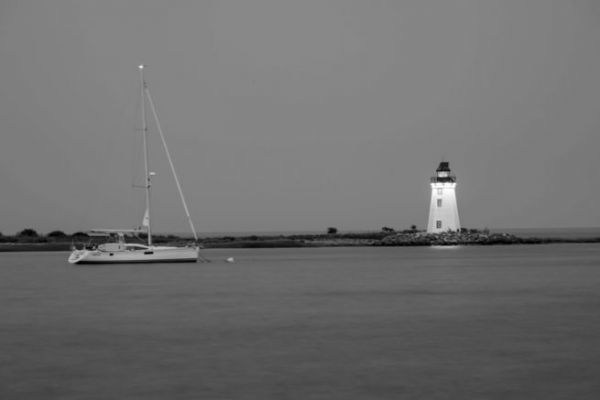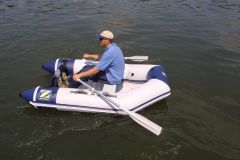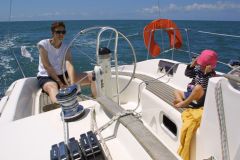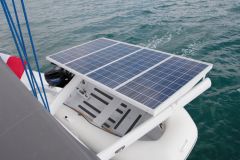The open sea has always been a dream. Infinite horizons, sunrises over calm seas... Yet behind the poetic image lies a far more complex reality. As soon as the shore disappears, sailors find themselves confronted by insidious adversaries: chronic fatigue, a feeling of isolation or tensions amplified by the close quarters on board.
Sailing is not just about coping with the whims of the wind or the sea, it's also about learning to deal with yourself and others. Whether solo or with a crew, every crossing is a school of resilience. In this article, we explore these moments of doubt and fatigue, as well as the concrete solutions and life lessons they offer.
Fatigue: a persistent and deceptive companion
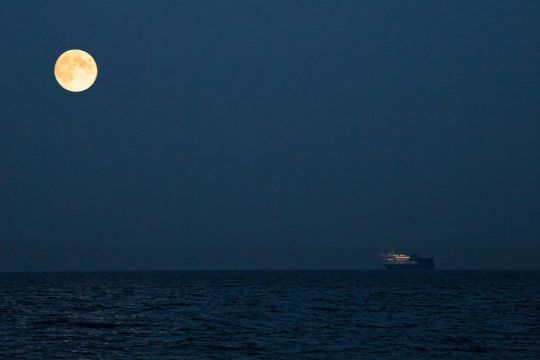
It's midnight. The swell is powerful and the wind changeable. On a sailboat on the high seas, nights break up into irregular slices where sleep is more like nervous waiting than restful rest. All sailors are familiar with this reality. Sophie, accustomed to long solo crossings, confides: " The sea wears you down more than you know. You're never really rested. Even when things are calm, your body is always on the alert, ready to react to the slightest suspicious noise. "
Crew fatigue is different, but just as pernicious. Marc and Louise, who crossed the Atlantic as a pair, recall the tensions born of an exhausting pace: " We took turns every four hours, but it wasn't enough. When one slept, he was always haunted by the idea that the other might need help. "
To alleviate this wear and tear, some crews introduce longer watches to provide more effective recovery periods. Others take extended breaks in safe ports, even if it means delaying their itinerary. But the real secret lies in listening to your body: knowing how to recognize the warning signs of exhaustion before it becomes unmanageable.
Solitude: the test of self facing self
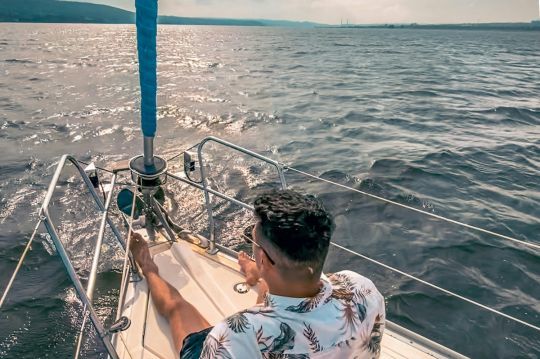
At sea, solitude can be a blessing or a curse, sometimes both at the same time. For Sophie, this solo sailor, a particularly difficult moment marked her first transatlantic race: " A violent squall hit in the middle of the night. I was alone, tired and in deep distress. It was as if the sea itself was testing me. I had no one to talk to, no one to share my fear. But at the same time, this experience taught me that I could trust myself. "
Even with a crew, loneliness can creep into the interstices of relationships. Caroline explains:" When fatigue sets in, you end up closing in on yourself. There were times when, even though Olivier was just a few meters away, I felt alone in the face of immensity. "
To combat this isolation, some sailors keep a logbook, in which they express their thoughts and emotions. Others equip themselves with technologies that enable them to keep in touch with their loved ones via satellite communications. But the real key is often acceptance: the acceptance of being alone, and of finding comfort in that solitude.
Tensions on board: a sometimes explosive in camera situation
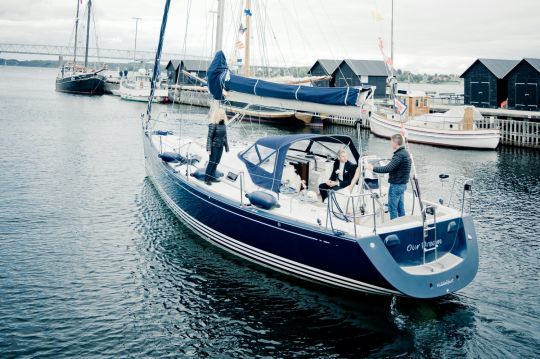
Sailing offshore also means sharing a restricted space with other people, sometimes for several weeks at a time. These conditions can put a strain on relationships. Philippe, captain of a polar exploration sailboat, explains:
" When it's cold, the boat is listing and everyone is exhausted, a simple remark can spark off an argument. It's important to defuse tensions before they become unmanageable. "
Experienced sailors stress the importance of communication. Louise and Marc, after a few bumps in the road during their first sailings, set up a simple rule: talk calmly every day about what was bothering them.
" The sea is unpredictable. We can't afford to let an argument undermine crew morale. Problems are solved quickly, before they take root "explains Marc.
Navigating beyond challenges: turning difficulty into learning
Every difficulty encountered at sea is an opportunity to learn and grow. Long-time sailors often speak of the "letting go" required to find balance. Isabelle Autissier sums it up as follows: " crew. When a tense situation arises or an unexpected event threatens serenity, a touch of self-mockery or a burst of laughter can defuse conflicts and strengthen cohesion. As Clovis, captain of a sailing boat, shares: "> The sea shows you that you can't control everything. And it's where you learn to truly live in the moment. At sea, difficult moments are not failures, but opportunities for growth. They forge memories and transform sailors. So whether you're planning a few days' crossing or a round-the-world trip, remember that every challenge you overcome is an integral part of the adventure, and perhaps even of the dream you're chasing. 
As Bernard Moitessier wrote: "> "

 /
/ 